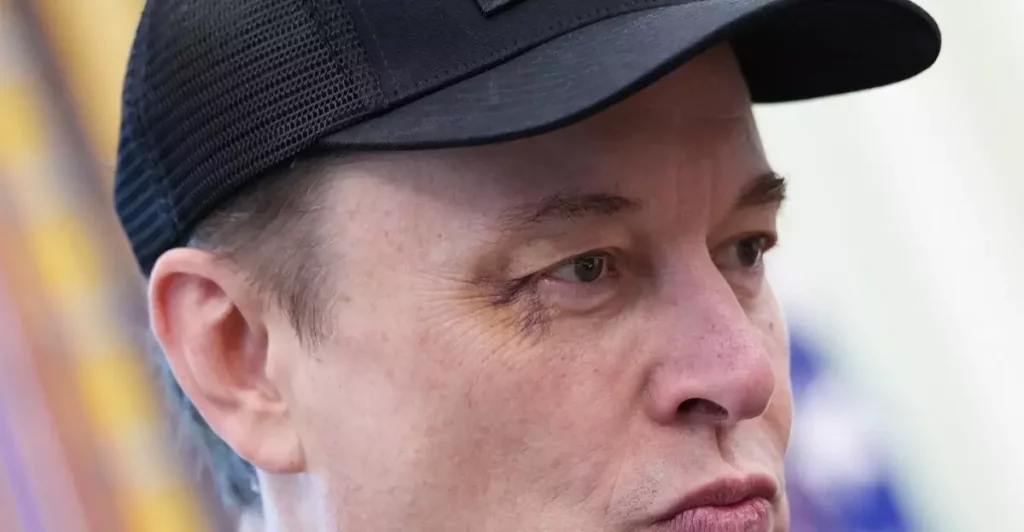In the ever-evolving landscape of technological innovation and societal impact, few figures stand as polarizing as Elon Musk. His recent exit from the Department of Government Efficiency (DOGE) mirrors a conundrum that grips not just him but the institutions he touches. The character that once cast a gleaming aura of a visionary leader is now frequently mired in doubt. While some lauded him for pioneering advancements, others lament the collateral damage of his leadership style. The contradiction is almost theatrical; a man revered as a luminary has, through his ambition, become a figure of significant controversy.
Musk’s tenure at DOGE was laden with colossal promises: to save a staggering trillion dollars by eradicating inefficiencies and waste. However, the operational reality painted a less flattering picture. Surveys reveal that a growing segment of the American public perceives Musk in a negative light. This shift isn’t solely about failed promises; it’s symptomatic of an executive approach that values bold pronouncements over ethical considerations. The calculated coldness of cutting humanitarian aid — with resultant loss of life — serves as a reminder of the human costs that underpin his brash business logic. One wonders whether Musk pays sufficient heed to the moral implications of his decisions, or whether he is so consumed by the metrics of savings and efficiency that he loses sight of the very essence of governance.
Chaotic Leadership Styles and Consequential Fallout
The destabilizing effects of Musk’s management tactics reverberate across the structures he oversees. A revolving door of hiring and firing left many employees disoriented and morale plummeting. Advocacy for efficiency can quickly dissolve into a chaotic mess when leadership resembles more of a tech startup than a governmental organization. The irony is clear: Musk, in his quest to streamline and save, has reportedly overseen losses that eclipse $135 billion — a stark contradiction to his projected savings. This raises significant questions about the compatibility of intense entrepreneurial tactics with the intricacies of governance.
Musk’s infamous inclination towards abrupt changes creates an environment where disillusion can proliferate. His method of offering paid administrative leave might appear benevolent on the surface, but it breeds inefficiency and exacerbates team fragmentation. It reveals a fundamental misunderstanding of what it means to lead in the public sphere, where empathy and stability often carry more weight than financial metrics. As teams grapple with a loss of direction, the question lingers: does such a disruptive model truly reform, or merely distract from the core challenges that persist in government operations?
Is DOGE Sustainable Without the “Dogefather”?
With Musk stepping away, the very identity of DOGE comes into question. Musk himself has proclaimed that this departure marks not the end, but a new beginning for DOGE. Yet, these platitudes feel less convincing amidst the disillusionment that has taken root during his reign. Without Musk’s vivid charisma and forward-thinking vision, the initiative risks stagnation, transforming from a beacon of innovation into another bureaucratic entanglement struggling to articulate a coherent direction.
This moment reflects a broader trend in leadership where individuals become both protagonists and antagonists in their narratives. As charismatic leaders depart, their legacies often hang in delicate balance. The potential for DOGE to transition into a period of sustainable progress hinges on its new leadership’s ability to navigate the pitfalls created during Musk’s tenure. Will they lean into reform, embracing a more compassionate and collaborative ethos, or will they falter and become trapped within the pre-existing frameworks that Musk’s reign created?
The Shadow of Public Perception
Public opinion has taken a nosedive, with sentiments that now cast Musk more as a disruptor than a savior. It is a reminder of how quickly public accolades can turn into criticism, particularly for high-profile figures whose ambitions paint them as larger-than-life characters. Even endorsements from political leaders, like Trump’s commendation of Musk’s “incredible service,” cannot overshadow the discontent brewing among the populace.
The road ahead for DOGE, as it stands at this pivotal juncture, appears fraught with uncertainty. As stakeholders reflect upon Musk’s departure, they are left to ponder whether the tumultuous ride has equipped DOGE for genuine growth or whether it will merely perpetuate the cycle of upheaval he initiated. In this fast-changing world, the challenge remains: fostering innovation and accountability while steering clear of the pitfalls created by a founder’s legacy that now feels both overbearing and deeply flawed.









Leave a Reply